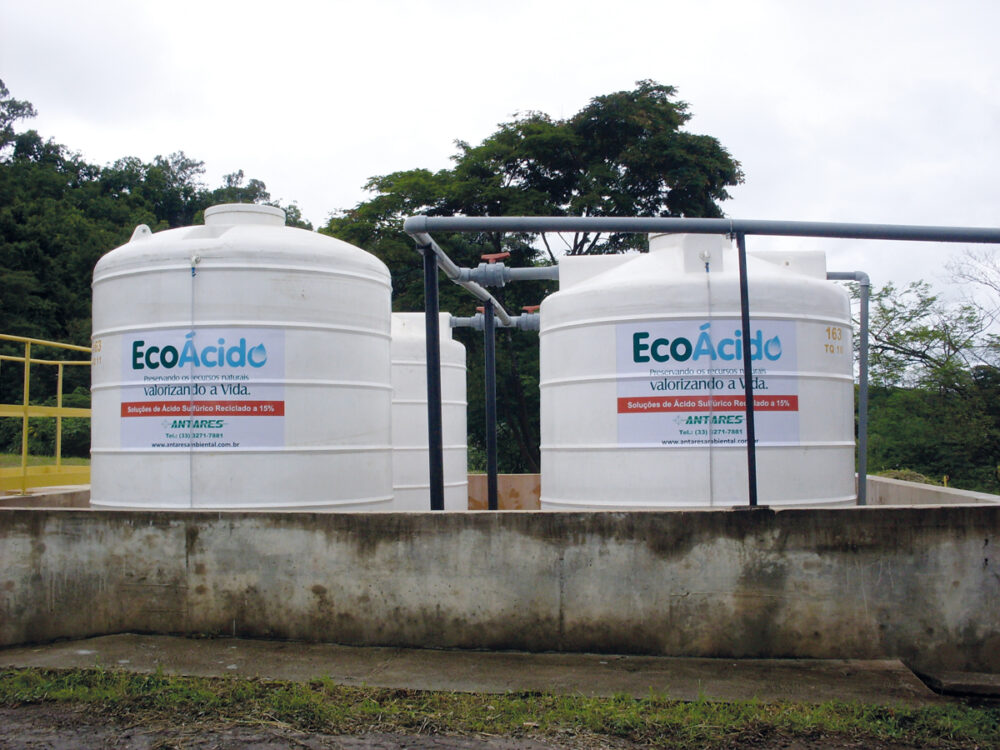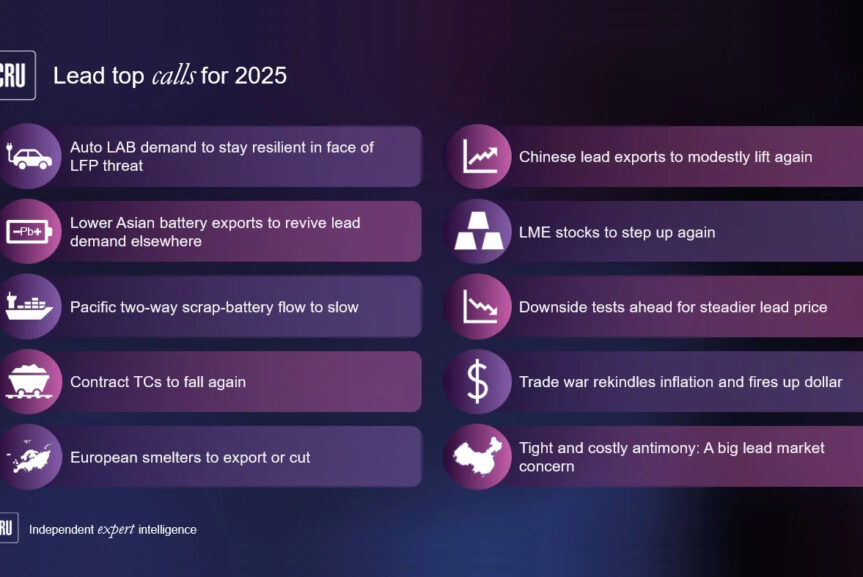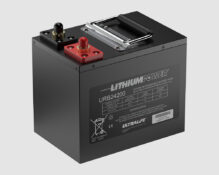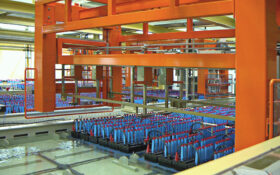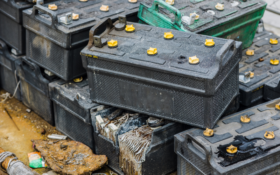Davi Trinidade of Brazil’s Antares Recycling outlines a project to remove sulphuric acid from lead batteries and turn it into a valuable commercial product.
Recycling company Antares is spearheading one of Brazil’s most cutting-edge and sustainable initiatives: the EcoAcid project, aimed at recycling sulphuric acid derived from lead-acid batteries. This initiative represents a strategic effort to preserve environmental resources while optimising the use of raw materials. Beyond addressing key environmental concerns, the project exemplifies the principles of the circular economy by transforming hazardous waste into valuable resources within the production chain.
Importantly, this project generates significant revenue for the company, replacing the high costs previously associated with the disposal of sulphuric acid waste.
Spent battery acid
Lead-acid batteries are widely used in Brazil, particularly in the automotive industry. The improper disposal of these batteries represents a serious environmental hazard. Sulphuric acid, an integral component of these batteries, is a highly corrosive substance.
If discarded improperly, it has the potential to contaminate soil and water bodies, threatening biodiversity and public health. The growing number of vehicles further exacerbates this problem, leading to an increased volume of spent batteries that must be managed responsibly.
This not only poses a direct threat to ecosystems but also affects human populations, particularly those reliant on affected water sources.
Antares Recycling developed the EcoAcid project. The process involves the collection, treatment, and purification of sulphuric acid from spent lead-acid batteries. This purified acid can then be reused in various industrial applications, thereby extending the lifecycle of a material traditionally considered hazardous.
Process
The technology utilises a stepwise physicochemical treatment system that includes capture, physicochemical treatment and sequential filtration. During the process, sophisticated flocculation and coagulation techniques efficiently remove contaminants dissolved in the acidic solution. Once this treatment is complete, the solution is directed to a series of specific filters that ensure the removal of remaining contaminants.
After treatment, the acidic solution exhibits high quality and purity, allowing for its commercialisation in industrial processes. The lead extracted from the acidic solution during treatment can be recovered and reused in the smelter’s furnaces.
By recovering the acid on an industrial scale, the project aligns with the principles of the circular economy – a model that seeks to maximise resource efficiency and minimise waste. This initiative reduces the need for virgin sulphuric acid production, which is both resource-intensive and environmentally harmful. Furthermore, it turns what was once a costly disposal challenge into a new revenue stream, showcasing the project’s financial and environmental value.
Large-scale recovery
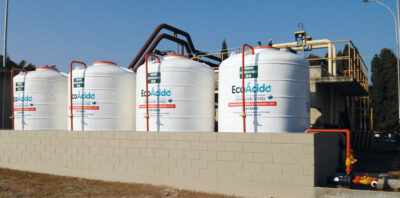
Moreover, by incorporating recycled acid into industrial processes, it helps to mitigate greenhouse gas emissions, particularly carbon dioxide. The production of sulphuric acid from virgin materials is associated with high levels of toxic emissions, and current neutralisation processes used in industries release substantial amounts of carbon dioxide into the atmosphere.
Circular economy
With EcoAcid, Brazil has taken a pioneering step towards achieving 100% recycling of lead-acid batteries, reusing all principal components, including sulphuric acid.
Today, approximately 90% of lead recyclers in Brazil have adopted this technology, marking a significant advancement in the country’s recycling sector. What once was an operational cost due to disposal has now become a profitable venture, with the project transforming liabilities into valuable assets.

